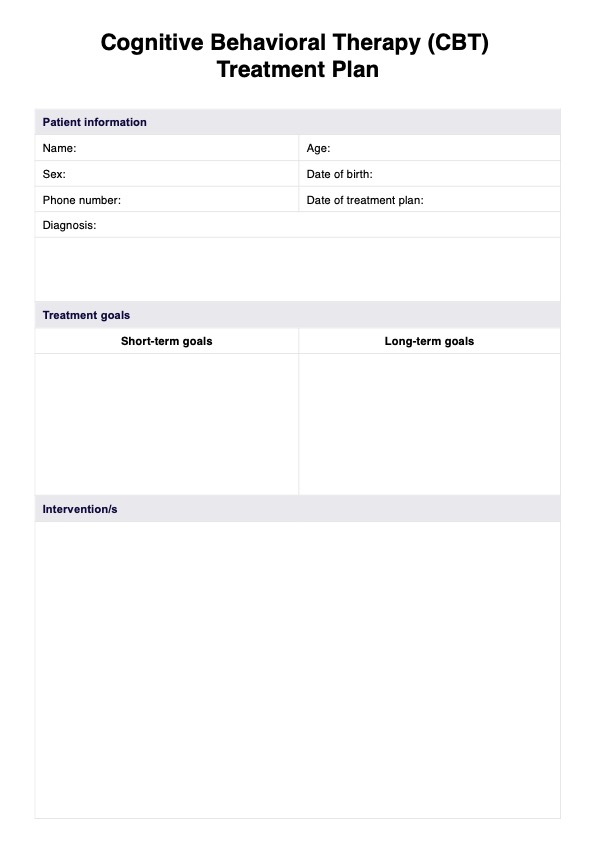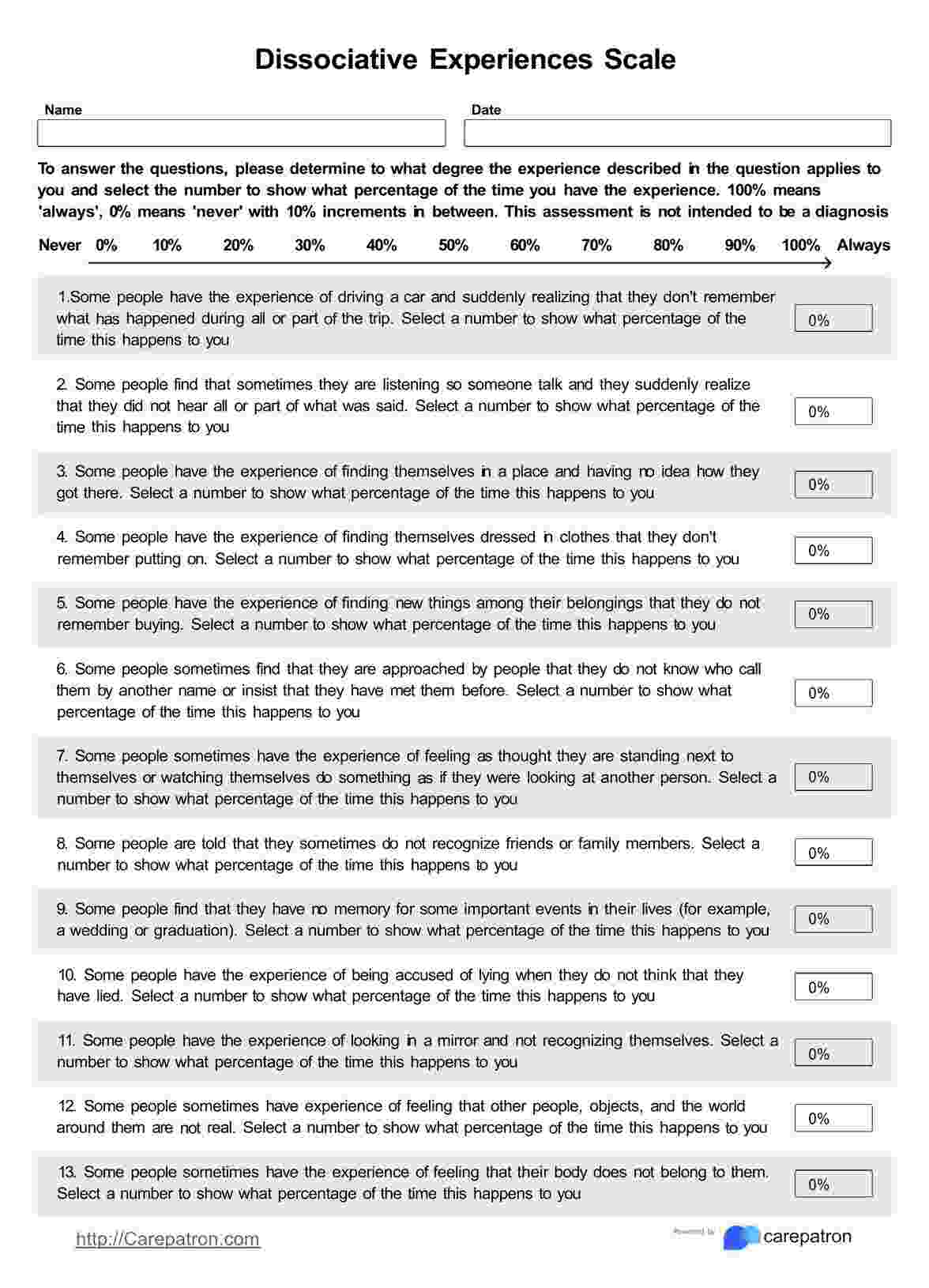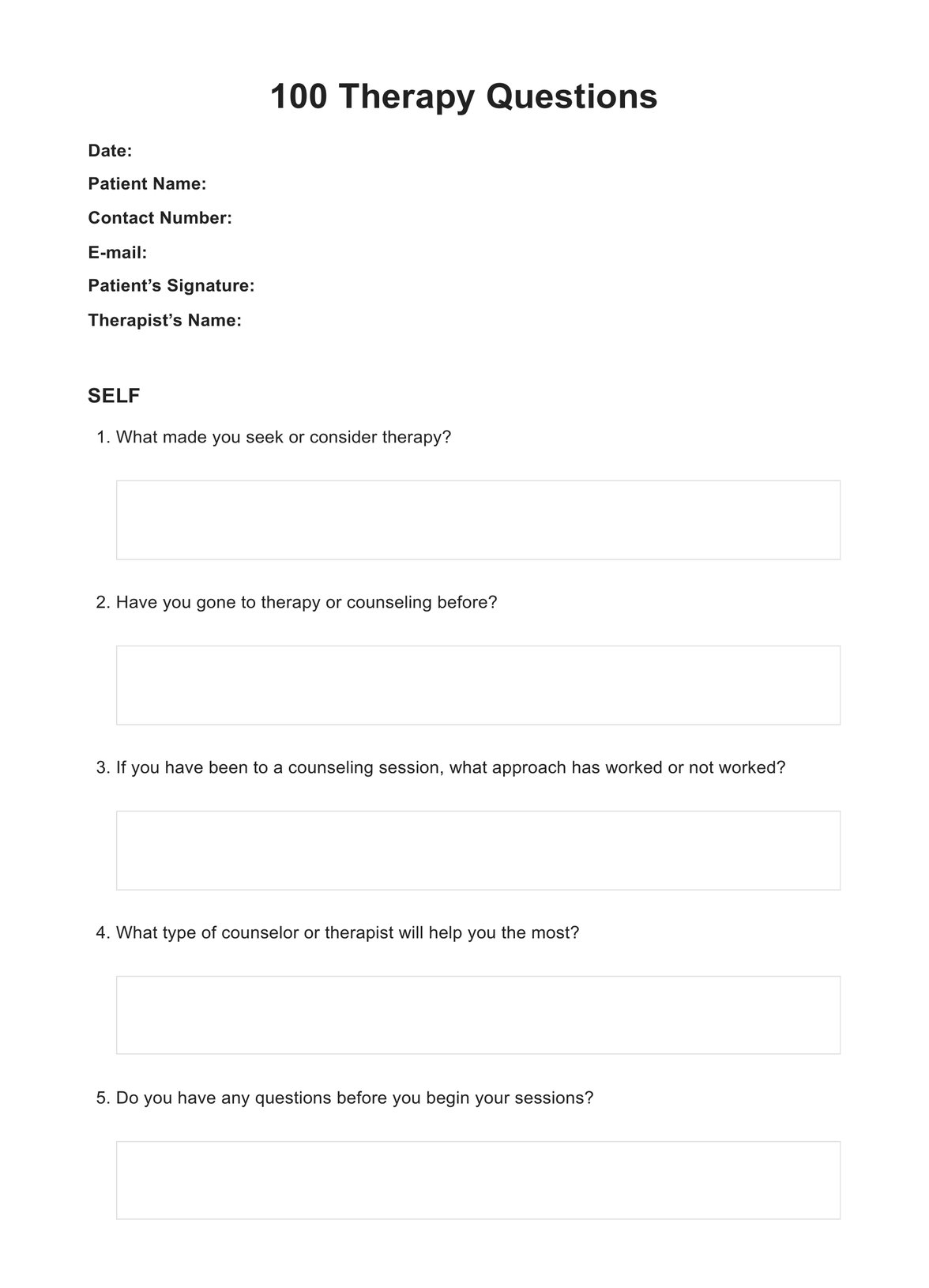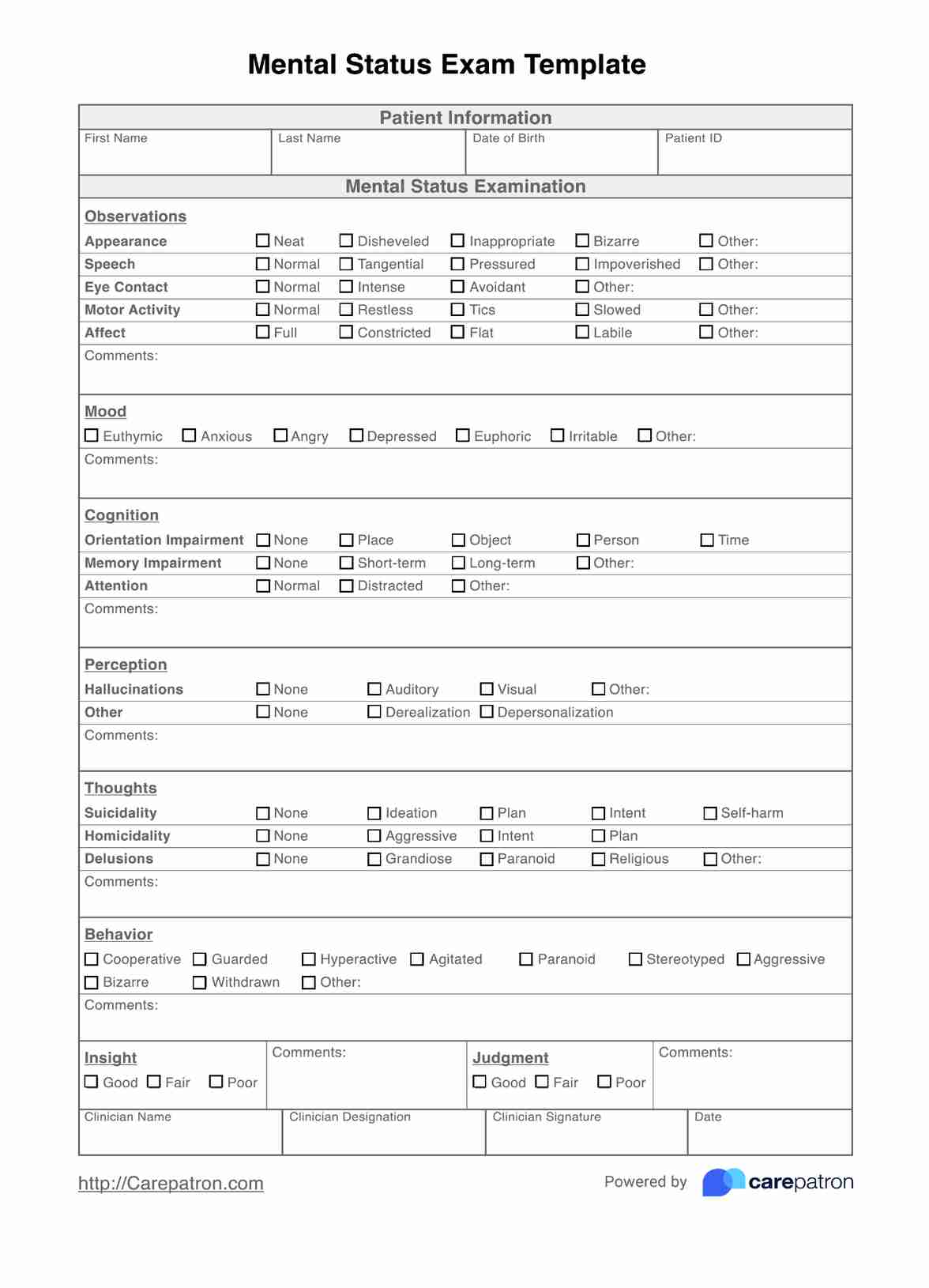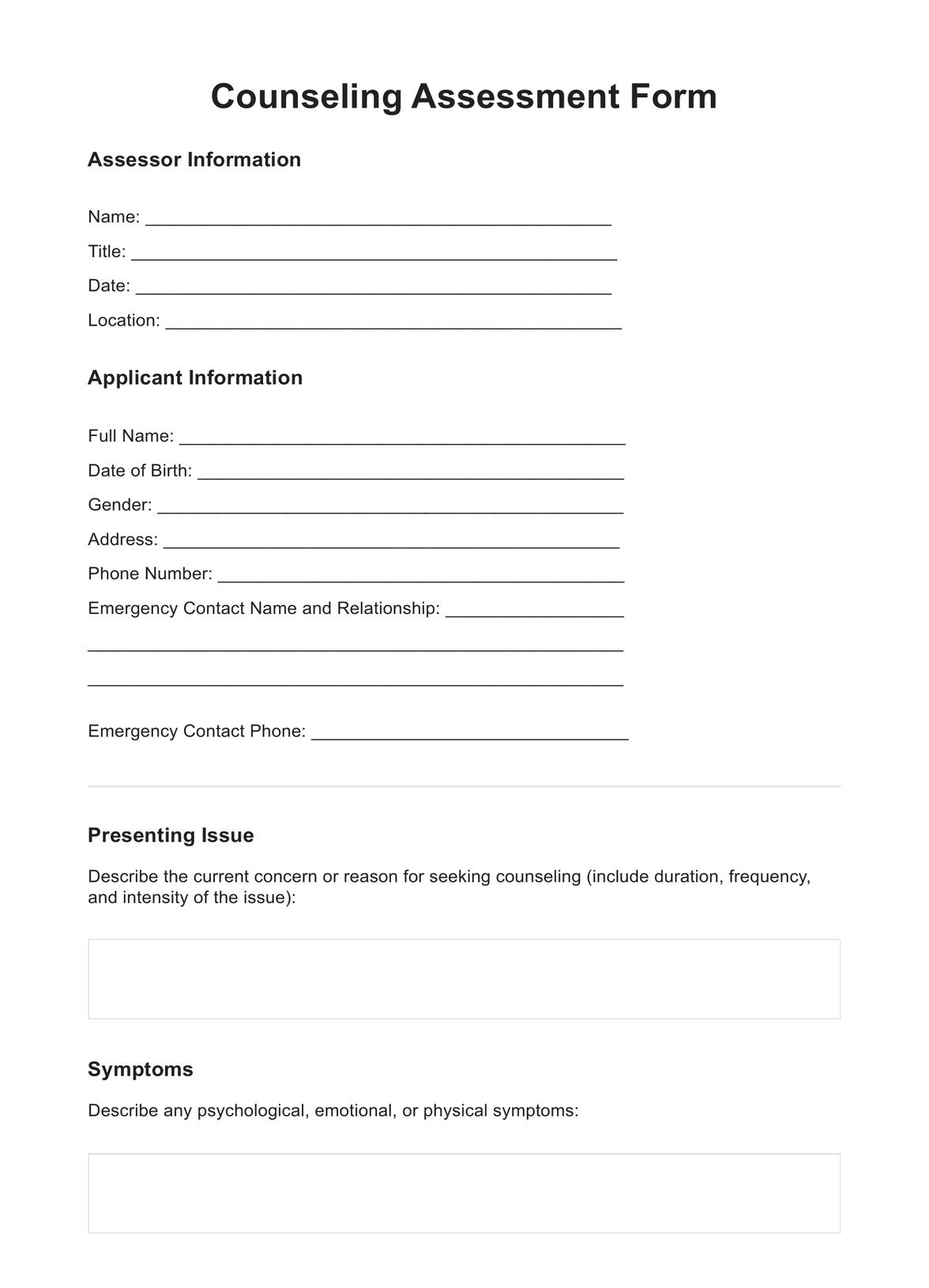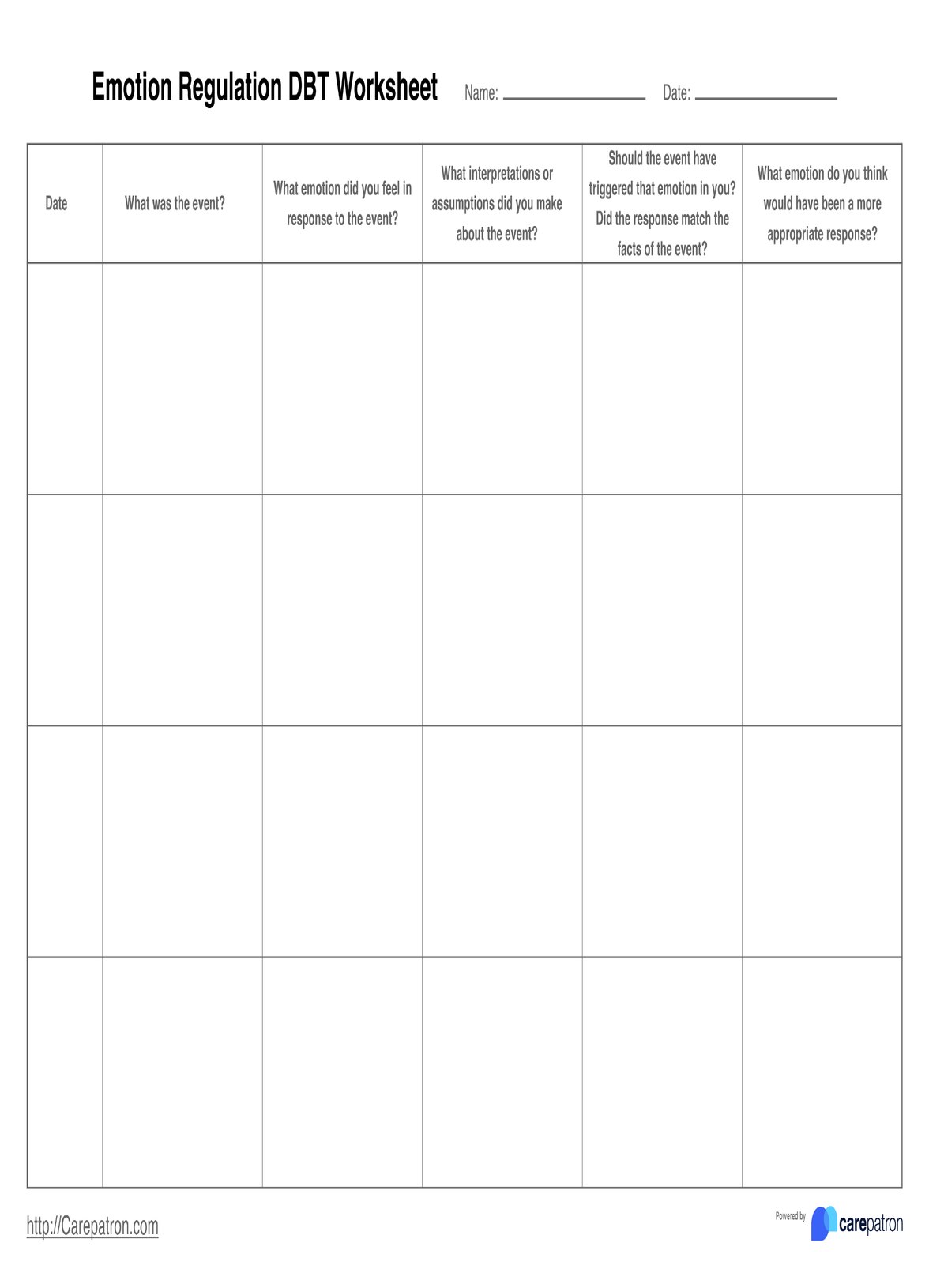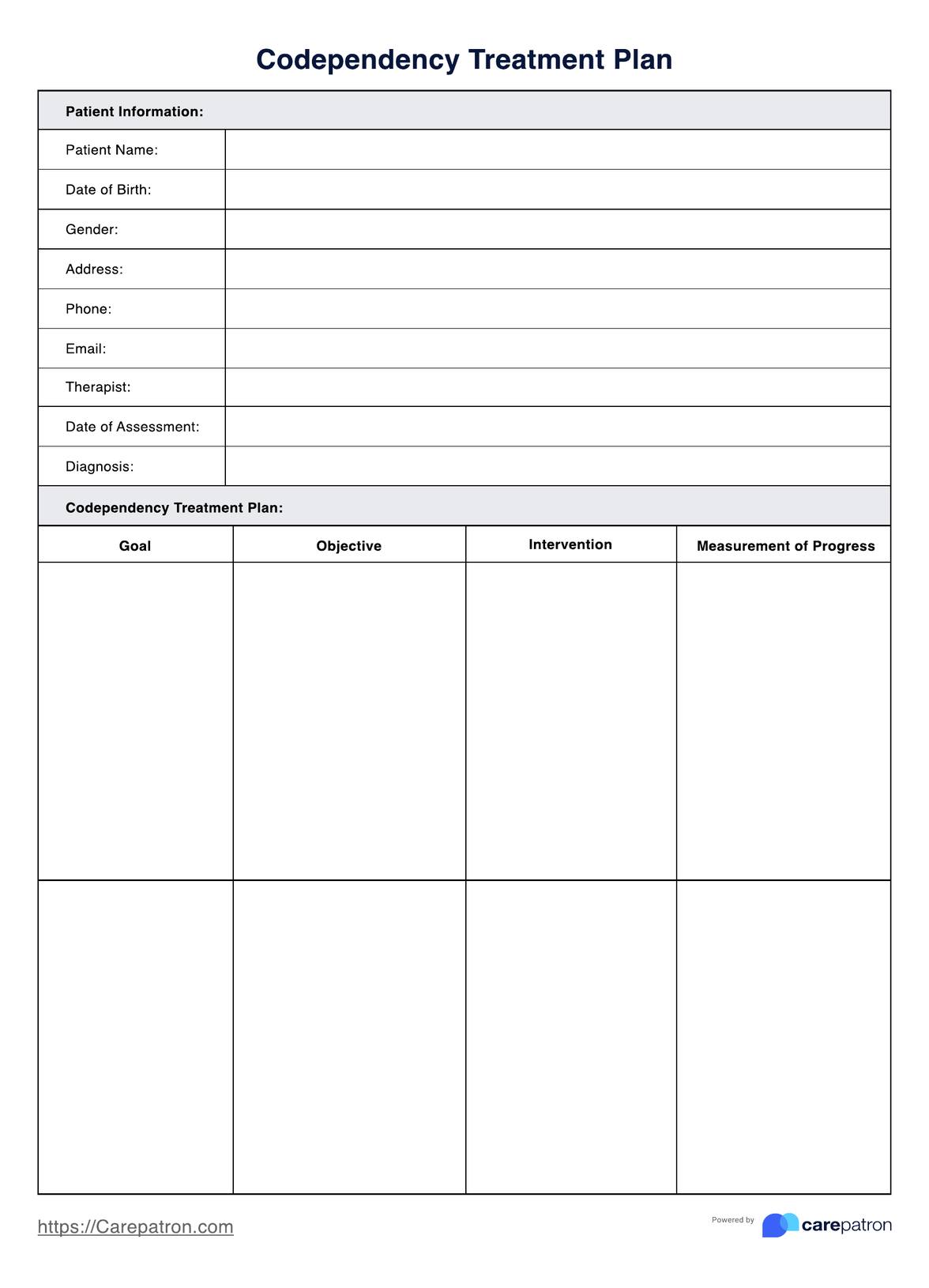Mental Health Intake Form
Integrate a high-quality mental health intake form that accurately captures your client’s concerns and developments. Generate insurance claims, and increase efficiency across your organization.


What is an intake assessment?
An intake assessment is a medical practitioner's process for collecting information and fostering a professional relationship built on trust. Depending on the practitioner, intake assessments may vary in length and content, affecting the interview/assessment duration. Some practitioners prefer to ask about their patient's mental health status and the reason for the consultation.
Mental Health Intake Form Template
Mental Health Intake Form Example
What is a Mental Health Intake Form?
A Mental Health Intake Form is used by mental health providers to gather essential client information. It typically includes sections for personal and medical details, such as the patient's medical history, current medications, allergies, and mental health or psychiatric history. The form may also ask about family mental health history, providing insights into potential risk factors.
Clients can communicate their concerns, specific symptoms, and details about any previous mental health diagnosis and services received. The form often includes sections on current medications, substance abuse history, and suicide risk assessment, ensuring mental health professionals are well-informed to provide appropriate care.
How to use this template for Mental Health Intake Forms
Knowing where to start when working with Mental Health Intake Forms can be challenging, so we're here to help. Using the step-by-step guide to the mental health intake form template, you can effectively incorporate mental health intake forms without compromising on quality.
Step 1: Download the PDF template
The first step is to download the PDF template. From there, you can save the template to work on or print the document to handwrite if that's what you prefer.
Step 2: Distribute to patients
The next step is to distribute the Mental Health Intake Form to the patient for them to fill out. The best way to do this is to give the form to your patient before the appointment, allowing you to review the information well before they arrive. Alternatively, the patients can also fill out the form while in the waiting room; however, remember that this may be more time-consuming and result in less preparation.
Step 3: Upload data to your practice's system
The next step is to upload patient data from the Mental Health Intake Form into your system. Anytime an insurance claim or referral is made, you can refer to the client within your database, which makes things seamless and accessible. All client information can be reviewed in just one place, and if any updates are needed, your administrative staff or you can refer to their data.
Step 4: Ensure it is stored securely
After transferring your intake forms to your preferred database, you must ensure they are protected from security breaches. Mental Health Intake Forms contain highly confidential information, so you must always protect the patient and maintain HIPAA compliance standards.
Who can use this printable Mental Health Intake Form (PDF)?
Mental health is a broad umbrella that pertains to several mental health care professionals. Essentially, any clinician working within the psychological and social well-being space can take advantage of the many benefits of these client forms. They can be used in various specializations with some customization. For example, a behavioral health intake form may be fitting for those who specialize in behavioral psychology.
Ideally, the Mental Health Intake Form benefits those who are licensed and prioritize growth in their clinic. To be specific, a list of professionals who can benefit from this includes the following:
- Psychotherapists
- Life coaches
- Counselors
- Therapists
Regardless of the size of your clinic, the number of clients you see, or the specialization you specialize in mental health intake forms are valuable to any healthcare practitioner in the mental healthcare space. This can include those with extensive training and qualifications, such as psychologists, or those with simpler accreditations.
Benefits of using intake assessment forms
There are also several benefits to integrating intake assessment beyond just their practical uses for you. In broader terms, they help you:
Save time
One of the greatest benefits is saving copious amounts of time. You don't have to worry about chasing patients up, and you don't have to draft a form every time. You also don't have to expend much effort altering the form to suit your needs.
Greater communication
You can also increase communication with your clients. You can accurately record all relevant information without missing any critical details and update it anytime new details emerge. Greater communication always works towards enhanced client satisfaction and more meaningful professional relationships—which is a big plus.
HIPAA compliance
Keeping distinct intake assessment forms within a secure database also works towards greater HIPAA compliance. HIPAA compliance is a central component of healthcare and ensures that all businesses are held accountable for their record keeping, professional judgments, and operations. Failure to comply with HIPAA can result in hefty fines, so boosting this wherever you can is always good practice.
Elevate client experience
Working in mental healthcare requires attentiveness to clients' needs and desires. Collaboration through intake assessments allows clients to express their concerns, enabling professionals to address issues effectively.
Structured sessions
Implementing intake forms also means that you can provide more guidance and structure for your sessions and appointments with your clients. Using the intake form, you can identify and prioritize the clients' most significant concerns within your therapy and treatment.
Commonly asked questions
Develop an ethical mental health intake form by ensuring clear language, informed consent, prioritizing client confidentiality, and incorporating culturally sensitive questions.
Medicaid typically requires specific information on a mental health intake form, including demographic details, medical history, current symptoms, psychiatric history, medications, and relevant billing and insurance information.
A mental health multidimensional intake form is a comprehensive document that covers various aspects of an individual's mental health, including demographic information, medical and psychiatric history, current symptoms, therapy preferences, and details about the client's psychosocial environment.


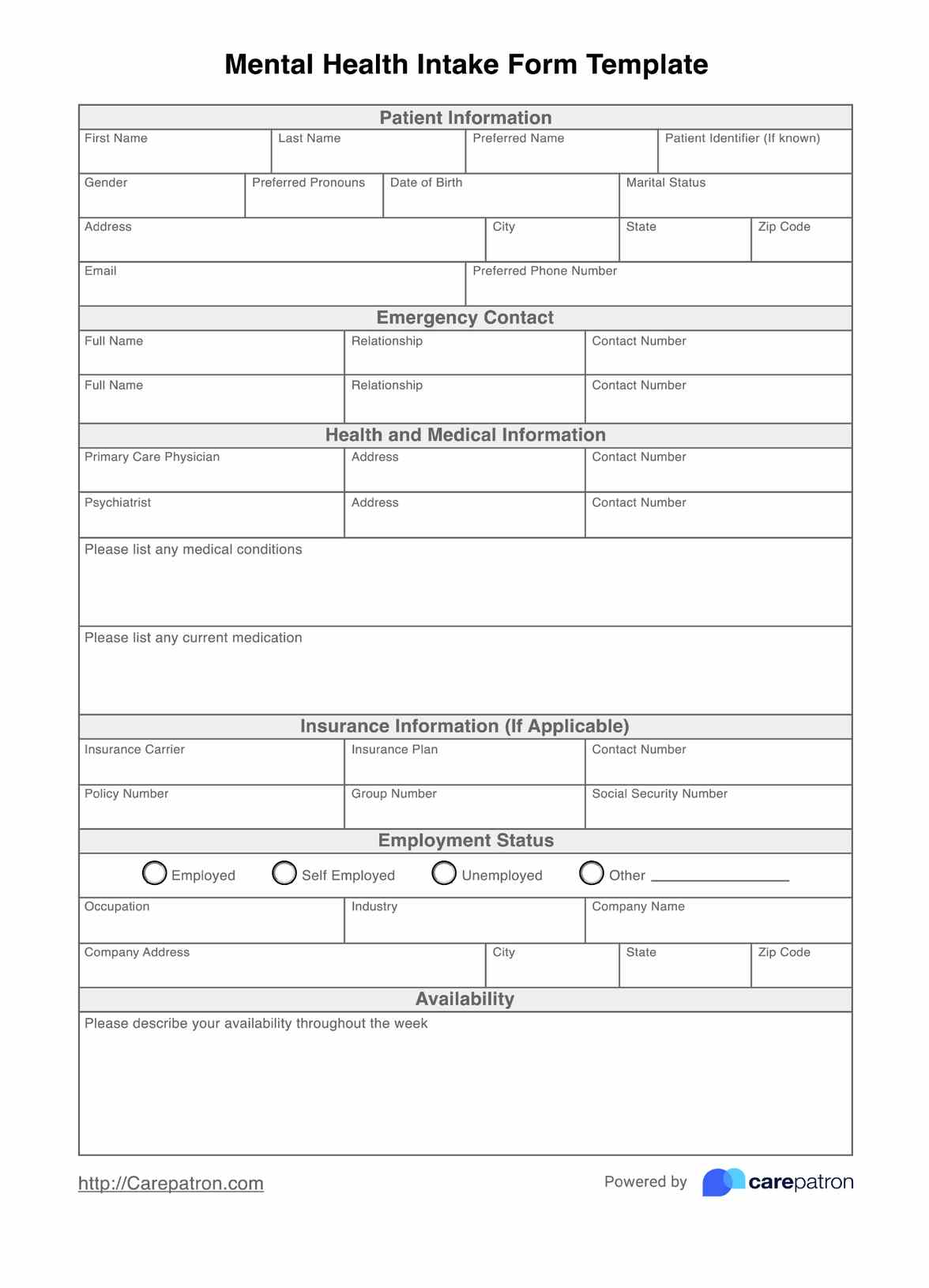
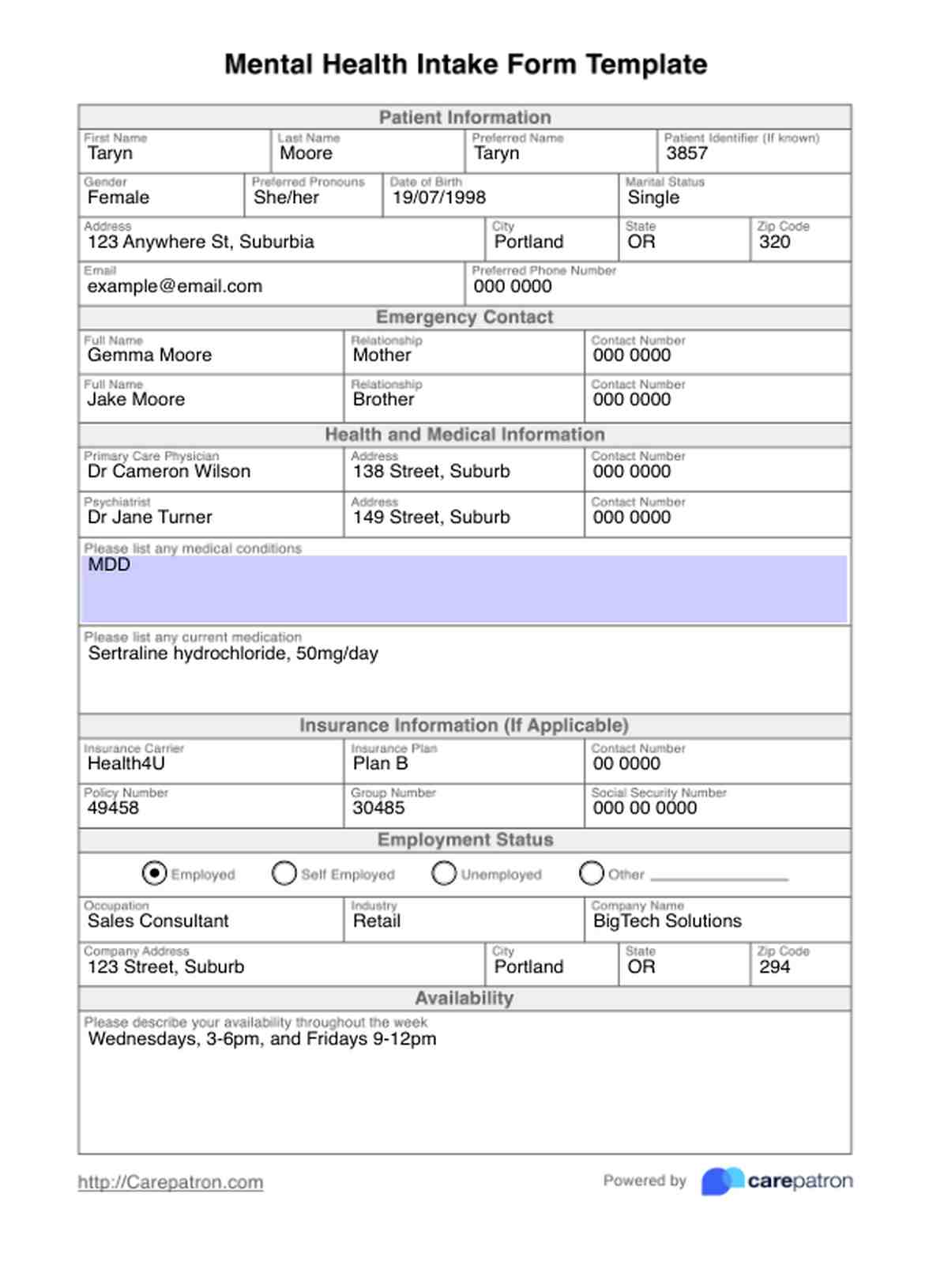














-template.jpg)






















































































